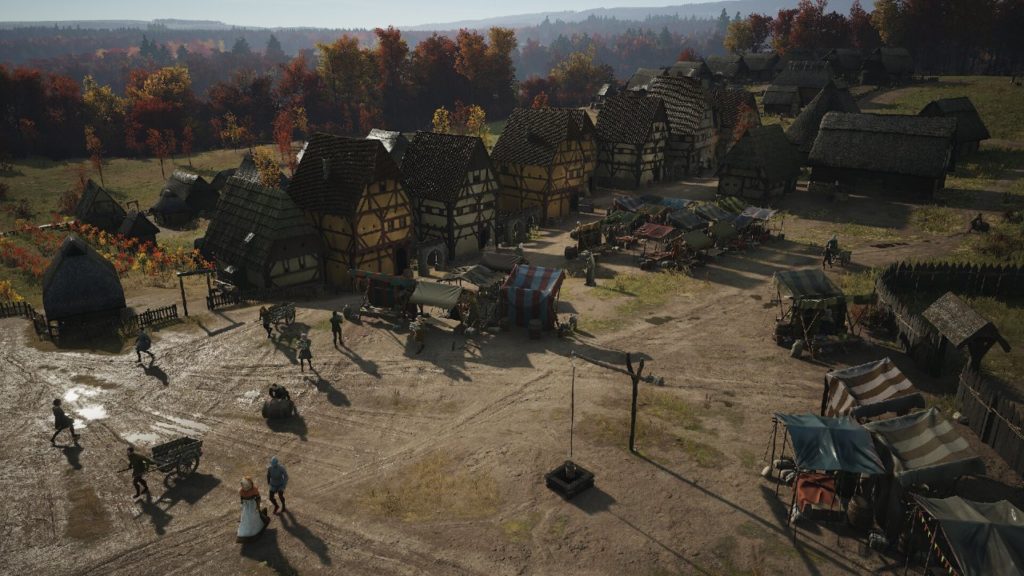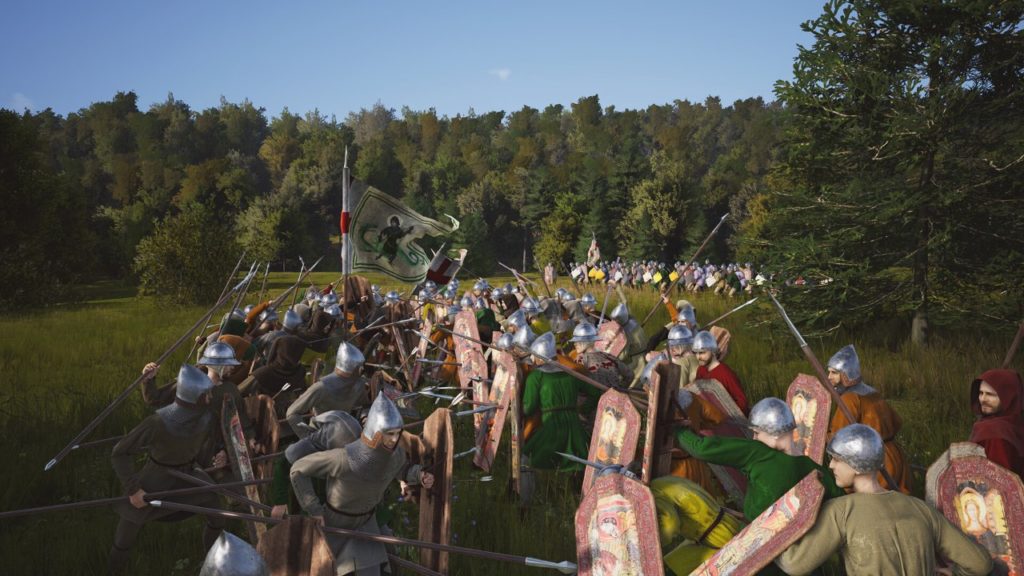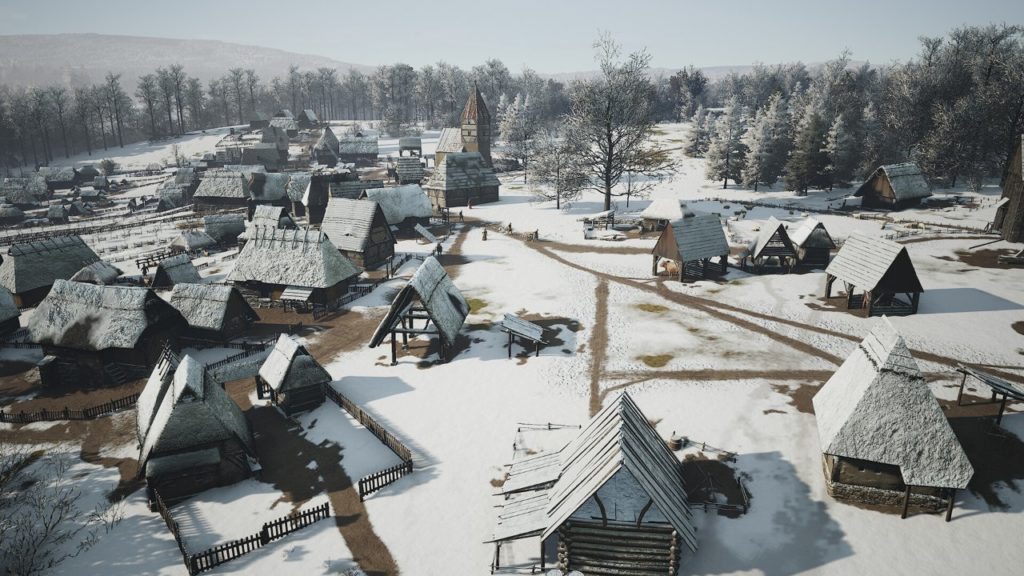Manor Lords is rich, compelling, and looks incredible at times | Early Access review
Manor Lords, from indie dev Slavic Magic, is a pretty unique game. Not only has it shifted a whopping 2 million copies in early access despite being unfinished in certain areas, but it also makes living in its version off 13th Century Europe feel authentic and compelling – even when there’s bugger all going on.
Beginning with nothing but a self portrait, a coat of arms, a few acres of land, and some willing peasants just standing around waiting to be told what to do, Manor Lords tasks you with constructing a thriving medieval city from the ground up. A suite of options allows you to tailor the difficulty, removing threats like bandits and bad weather, or taking conflict out of the game altogether and increasing your resources. Played on the standard settings, though, Manor Lords can be a pretty brutal game to get your head around.

Twice my poor planning led to mass starvation in the harsh winter months, and more than once I had my food stores raided by local bandits before I’d even had the chance to build a militia. You only start with a few workers, a small pile of supplies, and a hitching post to which is tied one beleaguered, over-worked ox. From this you begin by installing a Logging Camp, maybe a Hunter’s Lodge, and then burgage plots for homes. The more homes you have, the more people you’ll attract, and everyone who hangs around for more than five minutes must be immediately put to work.
Similarly to Fabledom, you must assign people to every structure you build in order to activate it, creating farmers, innkeepers, beekeepers, loggers, hunters, miners, and, yes, soldiers to defend it all. By gathering and storing resources you can hope to stave off the winter winds, and continue to expand and upgrade your village. A big selling point is the ability to “walk” around the place, but in reality this is a limited experience and one that’s not much worth investigating for some time.
What Manor Lords does better than most is present its world as both believable and realistic. There’s no magic, nothing in the way of fast travel or quick-fixes beyond speeding up the game. If you want to build something, you’ll need roads and oxen to transport the supplies, and you’ll need unassigned, unemployed families to do the work.

Managing your resources is critical, especially given the randomised nature of each seed, which can leave you with nothing but trees and mud or forests full of fruit and game, depending on the law of sod. In fact, luck plays a huge part in Manor Lords, especially early on. If poor fortune finds you up against a particularly hostile AI enemy, you’re going to have to bend over and take a lot of beatings before you’re even able to defend yourself. There’s research to do to unlock new inventions and amenities, but if you do what I did and try to learn beekeeping and mead-making before you start outfitting your unwashed serfs with weapons you’ll suffer for it. When you do finally go to war, its a highly strategic affair that sees you commanding the battlefield and getting right down into the mud and blood.
But like many city builders, the real addiction comes from watching your village grow. In Manor Lords this is even more magical as you can zoom right in on your villagers as they toil in the dirt for you, watching them throw up buildings in moments, or whizz back and forth going about their business. I found certain elements like trading (both with other lords or in the marketplace you can build) to be a little tedious, but you can reduce these elements if you like by playing it more like a sandbox. No matter how you play, tools like overlays to show you where the soil is richest and where your sources of underground water are allow you to plan ahead and promote efficiency.

The attention to detail is impressive, too, with massive variety in the burgage plots, and intricate details in every structure you build. When you have a small village and everything is working as it should, it’s simply wonderful, even if it does often get spoiled by bandits. The complexity of the politics, economy, and religion might be a little much for some – and indeed some of those elements simply aren’t fully realised yet – but again you can either tone them down or accept that they’re a part of what you’re trying to build here. Manor Lords doesn’t leave many stones unturned when it comes to fleshing out its world.
One thing that’s apparent even in early access is how much love and effort is being put into this game. Manor Lords is rich, compelling, and looks incredible at times, and offers a genuine slice of Medieval life for those up for the challenge. As more features are added in early access and some of the bugs are chased out (there’s still one hanging around that stops your families from moving into the homes you’ve built), I’ve no doubt Manor Lords and Slavic Magic will continue to go from strength to strength.





